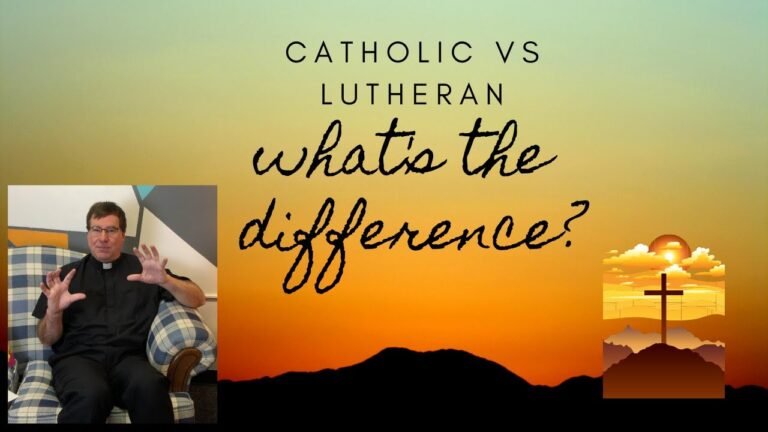Understanding the Meaning of Lord Have Mercy
The phrase Lord have mercy carries profound emotional weight, often used in moments of distress, disbelief, or deep empathy. Rooted in religious tradition, it invokes a plea for divine compassion and understanding, transcending mere words to resonate with the human experience. In contemporary discourse, it has evolved into a powerful expression, reflecting our collective struggles and the need for solace in challenging times. This article delves into the origins, usage, and cultural significance of this evocative phrase, exploring what Lord have mercy truly means in today’s world.
What does Lord have mercy truly signify?
Lord have mercy signifies a plea for compassion and forgiveness, often expressing deep need for divine assistance or understanding in times of struggle or distress.
What is the meaning of Lord have mercy?
The phrase “Lord, have mercy,” originating from the Greek Kyrie eleison, serves as a profound expression of humility and reliance on divine compassion. In the context of the Mass, it invites the faithful to acknowledge their vulnerabilities, bringing forth their weaknesses, sins, and fears in a collective appeal for grace. This moment of earnest supplication is not just a personal request but a communal one, encompassing the struggles of loved ones and the broader human experience.
By invoking the mercy of Christ, believers find solace and strength in the acknowledgment of their shared humanity. This plea transcends individual concerns, capturing the essence of a world in need of healing and redemption. As Catholic author Thomas Howard eloquently states, this heartfelt cry encapsulates the deep longing for God’s intervention in the face of life’s challenges, resonating with the universal experience of suffering.
Ultimately, the call for mercy reflects a hopeful yearning for transformation and reconciliation. It is a reminder that, despite our failings, we are not alone; we are embraced by a compassionate presence that seeks to uplift and restore. This simple yet powerful invocation serves as both a comfort and a call to action, encouraging believers to extend that same mercy to one another, fostering a spirit of love and understanding in their communities.
What does it mean when we say that God has mercy?
To say that God has mercy is to recognize our inherent vulnerability and dependence on divine compassion. When we utter the prayer, “Lord, have mercy,” we are openly admitting our need for help, whether it stems from our own shortcomings or the struggles faced by those around us. This prayer transforms our acknowledgment of helplessness into a plea for support, inviting a profound connection with the divine.
Mercy, in this sense, is not just about forgiveness; it encompasses a broader understanding of empathy and assistance. It serves as a reminder that we are not alone in our struggles, and that God’s grace provides the strength and resources we often lack. By embracing the concept of mercy, we cultivate a spirit of humility and openness, allowing us to seek and extend compassion to ourselves and others in times of difficulty.
Is it acceptable to say Lord, have mercy?
The phrase “Lord, have mercy” serves as a powerful expression of humility and reliance on divine grace. It captures a deep human need for compassion and forgiveness, making it relevant in times of personal struggle or societal turmoil. This simple prayer resonates across various faiths and cultures, reminding us of our shared vulnerabilities and the universal desire for mercy in our lives.
In moments of distress, saying “Lord, have mercy” can provide solace and strength. It invites us to pause, reflect, and seek comfort beyond ourselves. This heartfelt plea not only acknowledges our limitations but also opens the door to healing and reconciliation, both within ourselves and in our relationships with others.
Moreover, the repetition of this prayer can foster a deeper connection to our faith and community. By uttering these words, we join countless others who have sought divine intervention throughout history. Embracing this phrase allows us to cultivate compassion and empathy in our everyday interactions, reminding us of the importance of mercy in a world that often feels divided.
Exploring the Depths of Divine Compassion
In a world often marked by strife and discord, the concept of divine compassion emerges as a beacon of hope and healing. This profound empathy transcends human understanding, inviting individuals to connect with a greater purpose and find solace in the embrace of the divine. It is through this lens of compassion that we can begin to appreciate the interconnectedness of all beings, fostering a sense of unity that transcends our differences.
As we delve deeper into the nature of divine compassion, we uncover its transformative power. It inspires us to extend kindness not only to those we hold dear but also to strangers and even adversaries. By cultivating a compassionate heart, we align ourselves with a divine energy that encourages forgiveness, understanding, and love. This journey inward allows us to break down the barriers that isolate us, revealing the shared humanity that binds us together.
Ultimately, embracing divine compassion can reshape our lives and communities. It empowers us to become agents of change, spreading light in places shadowed by despair. By embodying this spirit of compassion, we can create ripples of positivity that inspire others to do the same, fostering a world where empathy and love reign supreme. In this exploration of divine compassion, we find not only a path to personal growth but also a collective call to uplift one another in our shared journey through life.
A Journey Through Grace and Forgiveness
In a world often overshadowed by conflict and misunderstanding, the journey through grace and forgiveness reveals the profound strength found in reconciliation. It invites us to embrace vulnerability, allowing us to confront our own shortcomings while extending compassion to others. Each step taken along this path illuminates the transformative power of letting go, freeing us from the burdens of resentment and regret. As we navigate our relationships, we discover that grace is not merely a gift we receive; it is an active choice to uplift and support one another in our shared humanity.
As we delve deeper into this journey, we uncover the healing potential that lies within forgiveness. It serves as a bridge, connecting us to our past while empowering us to move forward with renewed hope and purpose. Embracing this process requires courage, yet it opens the door to authentic connections and a sense of community. In choosing grace, we learn to celebrate our differences and foster understanding, ultimately crafting a narrative that honors both our struggles and our triumphs. Together, we can cultivate a world where love prevails, and every individual has the opportunity to heal and grow.
The Power of Pleading for Mercy
In moments of despair and vulnerability, the act of pleading for mercy can serve as a powerful catalyst for change. It transcends mere words, tapping into the deep-seated emotions that connect us as human beings. When we lay bare our struggles, we invite compassion and understanding, creating a bridge of empathy that can transform relationships and foster healing. This profound exchange often leads to unexpected resolutions, as the vulnerability displayed opens hearts and minds, allowing for reconciliation and growth.
Moreover, the power of pleading for mercy extends beyond personal interactions; it resonates within the broader context of society. When communities come together to advocate for justice and compassion, they amplify the voices of those who have been marginalized or silenced. This collective plea can inspire systemic change, urging decision-makers to reconsider policies and practices that perpetuate suffering. Ultimately, the courage to ask for mercy not only strengthens individual bonds but also ignites a movement towards a more compassionate world, reminding us of the shared humanity that unites us all.
The phrase lord have mercy resonates deeply in various contexts, embodying a plea for compassion, understanding, and relief in times of distress. Its rich history and emotional weight reflect the human experience of seeking solace amid life’s challenges. By embracing this expression, we connect with a shared sense of vulnerability and hope, reminding ourselves that even in our darkest moments, we are not alone in our struggles.






